Meet
Five Six Textiles, a social enterprise textile company that looks to enhance education through the traditional woven cloth heritage of Côte d’Ivoire(Ivory Coast). The brand produces home goods and bags that are inspired for contemporary style. The company was started to preserve an ancient artistic practice, to make goods in a mindful way that supports the artisans and their communities. Through the partnership Five | Six is creating an artisan-to-consumer business model that helps you feel comfortable about what you are purchasing.
All of the residents of Waraniéné work as full-time weavers. The women spin, dye, and stitch the cloth while the men weave. Their children learn the process through years of apprenticeships. The company is a collaborative effort between founders Emma and Laine and the weavers of Waraniéné, This collaboration ensures that all Five | Six textiles come straight from the collective to your home, creating consistent employment for the artisans, increasing wages, and preserving an artistic practice for years to come.
Five | Sixwill invest a portion of their proceeds into educational and adult literacy programs for Waraniéné in collaboration with the village’s leadership.
Five | Six is currently very close to its
goal on Kickstarterto make this social enterprise a reality. By helping fund Five | Six, you are purchasing a unique product while contributing to the positive social impact and development of a sustainable business model that will promote hand-made textiles and support local artisans.
Below is a Q&A with the very inspirational and creative Co-founder of
Five | Six, Emma Wingfield. Check out her thoughtful approach on creating a sustainable business model that works in partnership with the local community as it tries to build an educational foundation that will enhance the community for decades to come.
Did you travel to Côte d’Ivoire and did that inspire you to start Five | Six? If not what was the inspiration behind the start of the brand?
I traveled to Côte d’Ivoire during the summer of 2014 with five other curators. We visited artist workshops across the country. While spending time with the weavers of Waraniéné, they mentioned that they were interested in developing a partnership with someone in the United States who could help them appeal to a broader consumer base. Upon my return to New York I told my friend, and now business partner, Laine about what Waraniéné was interested in doing.
Laine is a fashion designer here in New York. We started talking and brainstorming ideas about what we could do to help and Five | Six spiralled out from there. With Laine’s fashion background, my African art background, and with so many resources here in New York we saw an opportunity to make a change and develop a direct to consumer brand that could really make a difference while preserving an artistic practice.
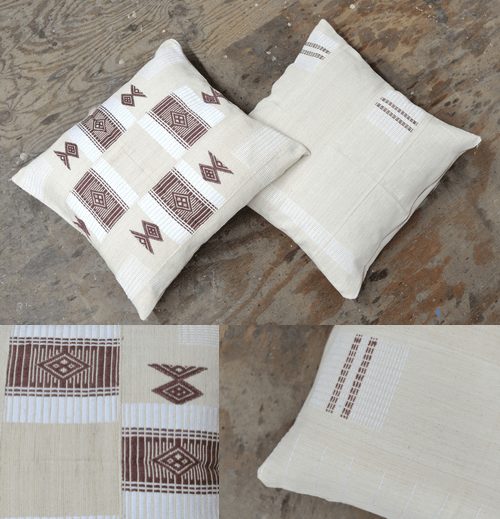
How big is the community of Waraniene? How many of those residents are now employed in some way and play a role in Five | Six?
The village of Waraniéné is a smaller outlying village near the main city of Korhogo in Northern Côte d’Ivoire (approx. 170,000 people). The entire village is part of the collective with between 100 and 150 active members today. Both men and women are employed and the children learn to weave, spin, and stitch through years of apprenticeships. The profits are distributed amongst the members of the collective. Because Five | Six is a partnership with Warnaiéné all of the artisans play a role in producing Five | Six Textiles.
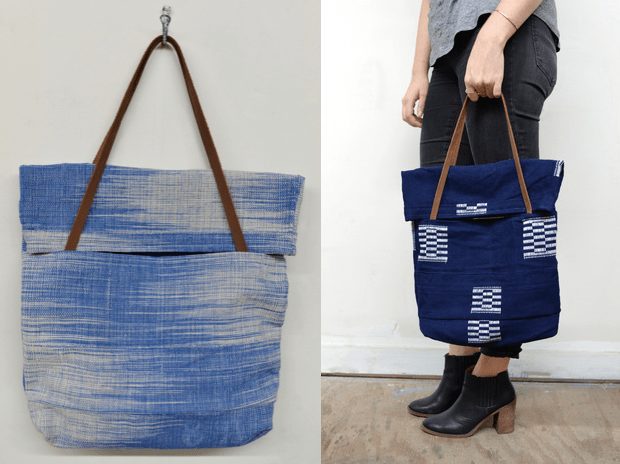
You have studied sustainable business models for a while, but decided that their one none that existed that you wanted to adopt. What is the sustainable model that Five | Six will be implementing and how do you see it be different from other sustainable models?
Our main issue with many sustainable business models is that they don’t allow room for working with a commercial business that already exists. Waraniéné incorporated in the 1970’s and their business model allows for their entire community to be involved with the business. Their economic struggles are the direct result of a Civil War that only ended in 2012. Their business still functions, it is the connections with consumers that need to be rebuilt.
Laine and I also found that many of the business models out there still have an underlying “we know best” attitude. We believe that this attitude doesn’t allow for communities to achieve the goals they see for themselves. Laine and I are here to help Waraniéné become more profitable and beneficial.
Five | Six is building a sustainable model that creates a dialogue with the local artisans and the global community. We want to spend time developing a business model with Waraniéné rather than for Waraniéné. We also want to consider what Waraniéné wants out of this partnership beyond consistent wages. Waraniéné specifically stated that they need better access to education for their children and adult literacy courses for themselves. Our business model allows for a percentage of our yearly profits to be designated for creating such initiatives.
There is no doubt that the cloth produced at Waraniéné are works of art. You won’t find these designs anywhere else on the market. These communities function as a social, artistic, and economic space with traditions being passed from generation to generation. The styles are continuously evolving. By focusing on where these art forms originated our sustainable business model will preserve these traditions so they can endure, continue to evolve, and become a reliable source of income to anyone who wants to make this their livelihood.
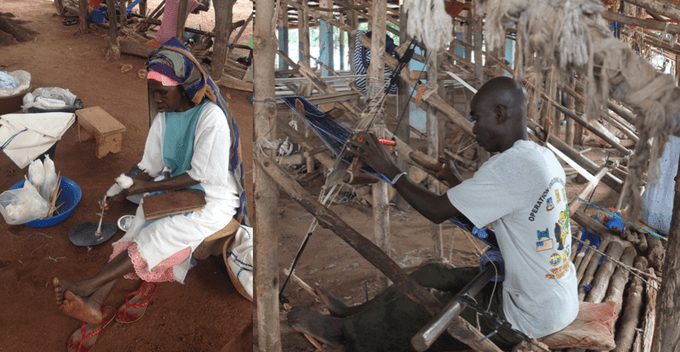
What are some of the ethical brands that impress you? What would you like to implement from them into your sustainable model?
Block Shop Textiles
– These two women are amazing! Each piece they make is truly a work of art and their attention to detail in their designs is beyond perfection. They also prioritize their partnership with their printers in India which has been a huge inspiration to Five | Six.
Warby Parker
– They have built a great brand while really making an impact. They have made huge strides to build a socially conscious business, without sacrificing quality, all the while maintaining affordable prices. Many models are either or and Warby Parker showed us that we could have ethical goals and offer an affordable product.
What is the meaning behind the Five | Six name?
The name Five | Six is a play on The Coast of the Five and Six Stripes, a name for Côte d’Ivoire occasionally found in old travel books. Five and six stripes alludes to the cotton cloth produced and worn in this area.
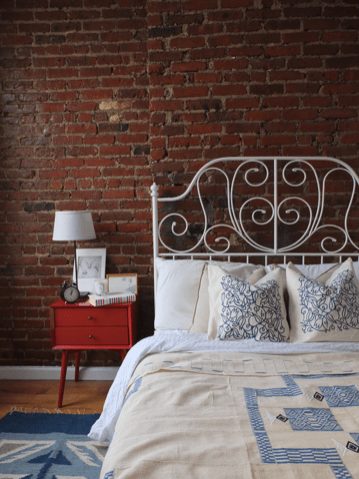
When the local citizens of Waraniene talk about access to education what specifically are they talking about? Are they talking about access to books, computers, teachers, or something different?
In Côte d’Ivoire a large percentage of children between the ages of 6 and 11 do not go to school. This is because access to schools in general is difficult. Especially in rural areas, as most schools are located in major cities. There is also pressure for children to help with farming and other household activities. The low education rate is due to the simple fact that there are not enough teachers and school buildings. Education is a basic human right and has the power to change lives. When the local citizens of Waraniéné talk about access to education, they mean basic access to schools, teachers, books, everything.
Will Five | Six be working with local educational non-profits to get better access for the citizens?
When we spoke with Waraniéné, they told us there weren’t any educational non-profits operating in that area. The Civil War in 2002 and the corresponding periods of unrest have disrupted many educational programs. We have plans to spend time with Waraniéné this summer to assess the best path forward, to better understand their educational needs, and make connections with local schools and teachers. The largest employment industry in Côte d’Ivoire is agriculture, with cocoa beans, coffee, and cotton being their main exports. It would be interesting to see if some of these education programs could focus on building better economic practices for industries present in the region.
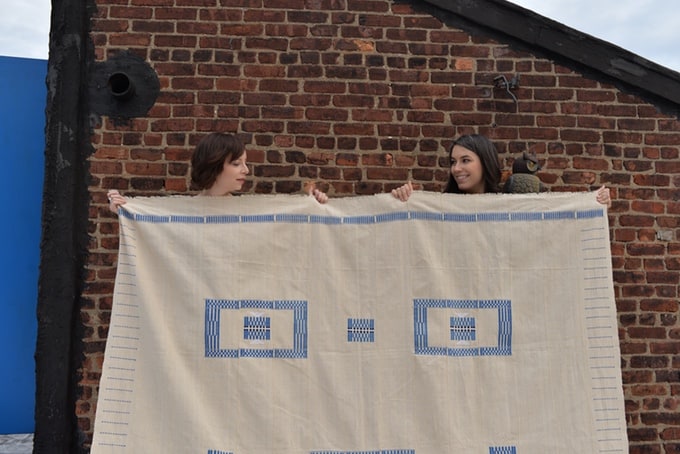
What are some of the first products in the product line? Are you mainly focusing on women with purses and handbags, or will their be products for men as well?
Our first line of products was launched on April 14 and available exclusively through our
Kickstartercampaign. Our product line includes our City Tote, a throw pillow, and bedspread. Our home goods could fit in any stylish home! This first launch is also an opportunity for us to get a better understanding of what our customer base wants. We plan on expanding our line to include other home goods and potentially accessories for men and women.
What will this Kickstarter campaign allow you to do. What is the plan when the campaign is over?
This
Kickstartercampaign has served a variety of functions for Five | Six. It has first and foremost allowed us to get our brand out into the global market. If we reach our funding goal we plan to officially begin production with Waraniéné on our first line of products and ship them to our backers. The successful campaign will also allow us to spend time with the artisans of Waraniéné in July to discuss our second collection and expanding our product base. We will also use this time to begin working with the village leadership and local schools to assess and the best path forward regarding the educational programs.








